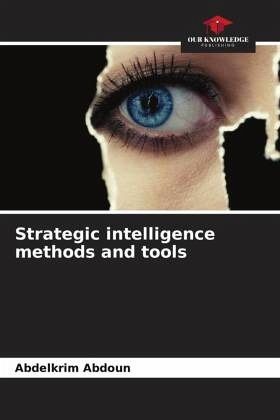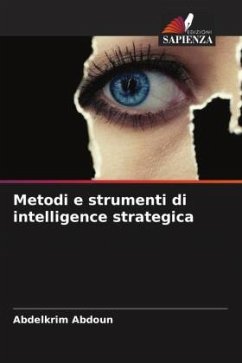
Strategic intelligence methods and tools
Versandkostenfrei!
Versandfertig in 6-10 Tagen
45,99 €
inkl. MwSt.

PAYBACK Punkte
23 °P sammeln!
Having emerged in the 1950s as a possible response to the challenges of competition, intelligence is now considered an autonomous discipline, whose essential purpose is to contribute effectively to the organization's objectives. Beyond this role, it represents the ideal weapon for meeting the challenges of the environment, whose risks and dangers must be guarded against, while opportunities must be seized. For this vital mission, intelligence has tools and methods at its disposal, which are rapidly evolving with the pace of technological change. And even if its epistemology has yet to be devel...
Having emerged in the 1950s as a possible response to the challenges of competition, intelligence is now considered an autonomous discipline, whose essential purpose is to contribute effectively to the organization's objectives. Beyond this role, it represents the ideal weapon for meeting the challenges of the environment, whose risks and dangers must be guarded against, while opportunities must be seized. For this vital mission, intelligence has tools and methods at its disposal, which are rapidly evolving with the pace of technological change. And even if its epistemology has yet to be developed, intelligence is a widely recognized activity today. Its successful implementation, however, depends not only on the commitment of the players involved, but above all on its organization, which must encourage collaborative work and optimal use of resources. The intelligence manager is the driving force behind this organization, on which the success and longevity of the company largely depend.












